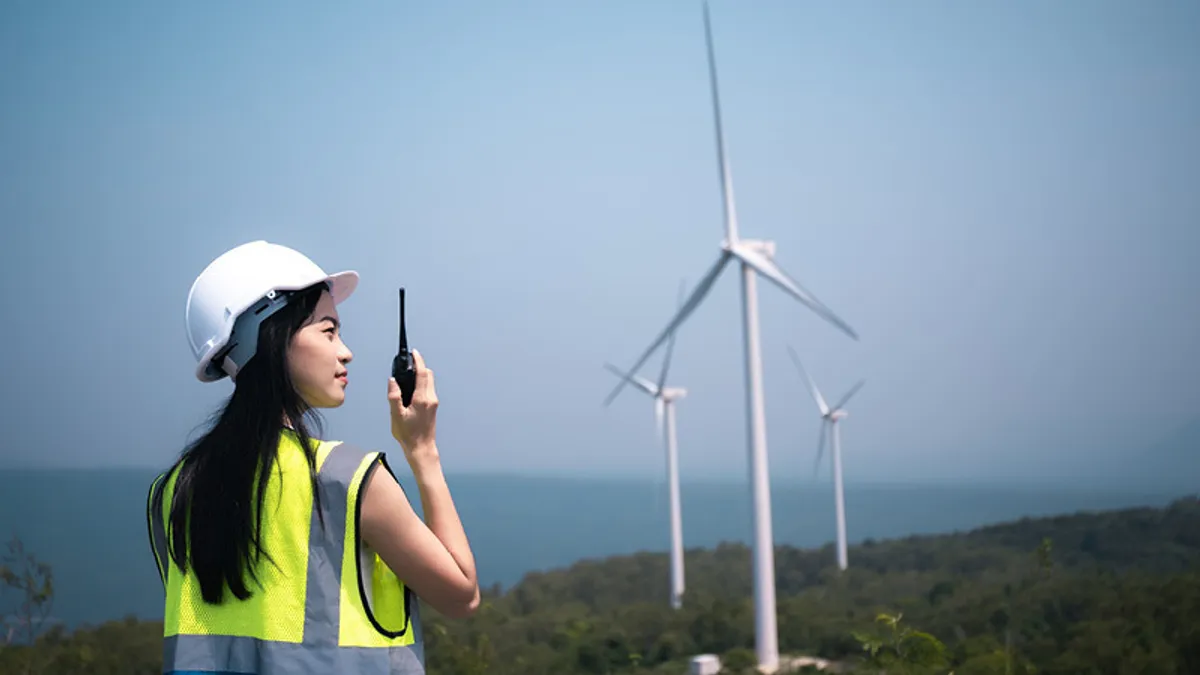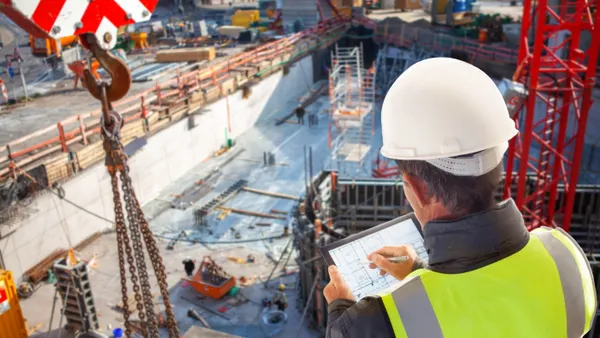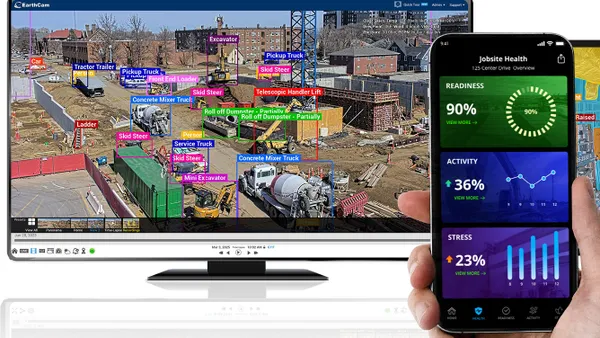Sustainability requirements for construction projects are equally as important as quality, safety, cost and schedule, not just for the success of the budget but also for environmental reasons. Committed to building more resilient infrastructure and durable low-carbon assets, companies are working to minimize landfill waste, cut water and materials consumption and build out their “green” transportation fleets.
While the construction industry has not traditionally been viewed as a pioneer of sustainability measures—McKinsey estimates that construction accounted for almost 40% of global emissions—there is good news! The industry is evolving and can significantly impact the environment positively through sustainable building practices. The European Union has pledged to reach carbon neutrality by 2050, meaning organizations across the continent are setting their own targets to meet corporate, national, continental and global goals. The desire is there, as more than 60% of organizations have said sustainability is important— and they are active or want to be active in this mission.
While these have historically been lofty goals, it is possible to deliver projects sustainably, manage costs and maintain margins and deliver huge value to the community. Leveraging new technology is part of the solution that can help make teams more knowledgeable and connected, to really make a difference and reduce carbon emissions throughout a project’s lifecycle.
Smart construction technology pushing industries forward
Construction organizations are already managing requirements and regulations every day, striving to improve enterprise performance and project execution. Project teams work hard to improve productivity, protect margins, manage scope, schedule and cost, as well as sustainability requirements and regulations.
New technologies such as the Oracle Smart Construction Platform, an ecosystem of Oracle technology and partner solutions, can help organizations fight climate change by managing and monitoring workflow efficiencies. They help drive performance across all KPIs, including the scope of sustainability across the project and full life of the built asset by optimizing scheduling and resource planning, driving efficiencies, mitigating rework and reducing waste.
Additionally, AI-powered construction technology solutions like the Oracle Construction Intelligence Cloud, can help teams predict schedule and supply chain issues and make recommendations to complete projects quicker and more sustainably than before. It helps managers access and use all their project data to gain a holistic view of performance metrics throughout operations. Users can gain insights across the Smart Construction Platform applications, including blended datasets and KPIs for schedule, cost, risk and other project areas.
Sustainability and partnerships in the field
These Oracle construction technologies and partner solutions are featured at the Oracle Industry Labs. The labs, located in Chicago, Illinois; Reading, UK; and Sydney, Australia; are unique testing grounds where customers and partners can explore, ideate and innovate solutions together, helping solve some of the greatest challenges across an array of industries. The labs are focused on improving technology aimed at enhancing sustainability, mobility and accessibility.
Some of the partner applications featured at the lab include Circulor, whose revolutionizing work in carbon scope management and material traceability throughout the supply chain, project and asset lifecycle is impacting environmental sustainability. Additionally, Naturemetrics is working on solutions for managing biodiversity and assessing the pre- and post-species impacts for project programs. Their technology helps teams look at species’ DNA to examine the impact construction work may have on the local ecological cycle.
The UK lab is also pioneering the sustainability journey. It is an open-air town center complete with electric vehicle (EV) charging stations, wind turbines and a small urban farm that shows humans and nature living in balance. The facility also features a simulated train station that includes a sustainably built railcar repurposed from an existing train using green materials. And of course, the lab has been recognized by the nonprofit US Green Building Council with the prestigious and highly regarded LEED Gold Certification.
To secure this certification, we adopted the LEED v4.1 Approach, which emphasizes energy and water conservation as well as reducing waste and improving air quality in the construction process. We also delivered quality beyond-market best practices during construction by utilizing innovative design, technologies, processes and material selection strategies.
Leading by example
Make no mistake, achieving carbon neutrality and reaching sustainability goals is no easy task, but it is necessary. That’s why Oracle in 2021 pledged to power its global operations—both in facilities and in the cloud—with 100% renewable energy by 2025. Since then, these initiatives have required a tireless overhaul of operations and hours of hard work to reduce e-waste rates and decrease the amount of waste sent to landfills. Additionally, we established our goals to achieve net zero emissions by 2050 and to halve the greenhouse gas emissions across our operations and supply chain by 2030.
That kind of work positioned us to be included in the Alliance for Clean Air, an industry-leading group of member companies collaborating to tackle air pollution, which serves as the fourth leading risk factor for early death worldwide behind only high blood pressure, tobacco use and a poor diet.
What’s next
The construction industry has the ability to build sustainably and make significant positive impacts on the environment. Changing the trajectory of climate change will take people, process and technology from all industries around the world. A series of small step changes can have big results in carbon reduction and help reach net zero goals.
We can be sure that more global sustainability pledges and mandates will be implemented across the country and the world. Achieving these goals will continue to directly impact future building projects, such as what materials should be used for new construction or what technologies to incorporate. We’re happy to play our part in leaving a cleaner, greener planet for future generations.
To learn more about how technology helps public and private owners and contractors better manage sustainability goals of projects and programs, join us for an exclusive construction sustainability webinar April 25th. Visit Oracle Construction & Engineering and Oracle’s Sustainability to learn how we are helping lead the construction industry into a more sustainable direction.










